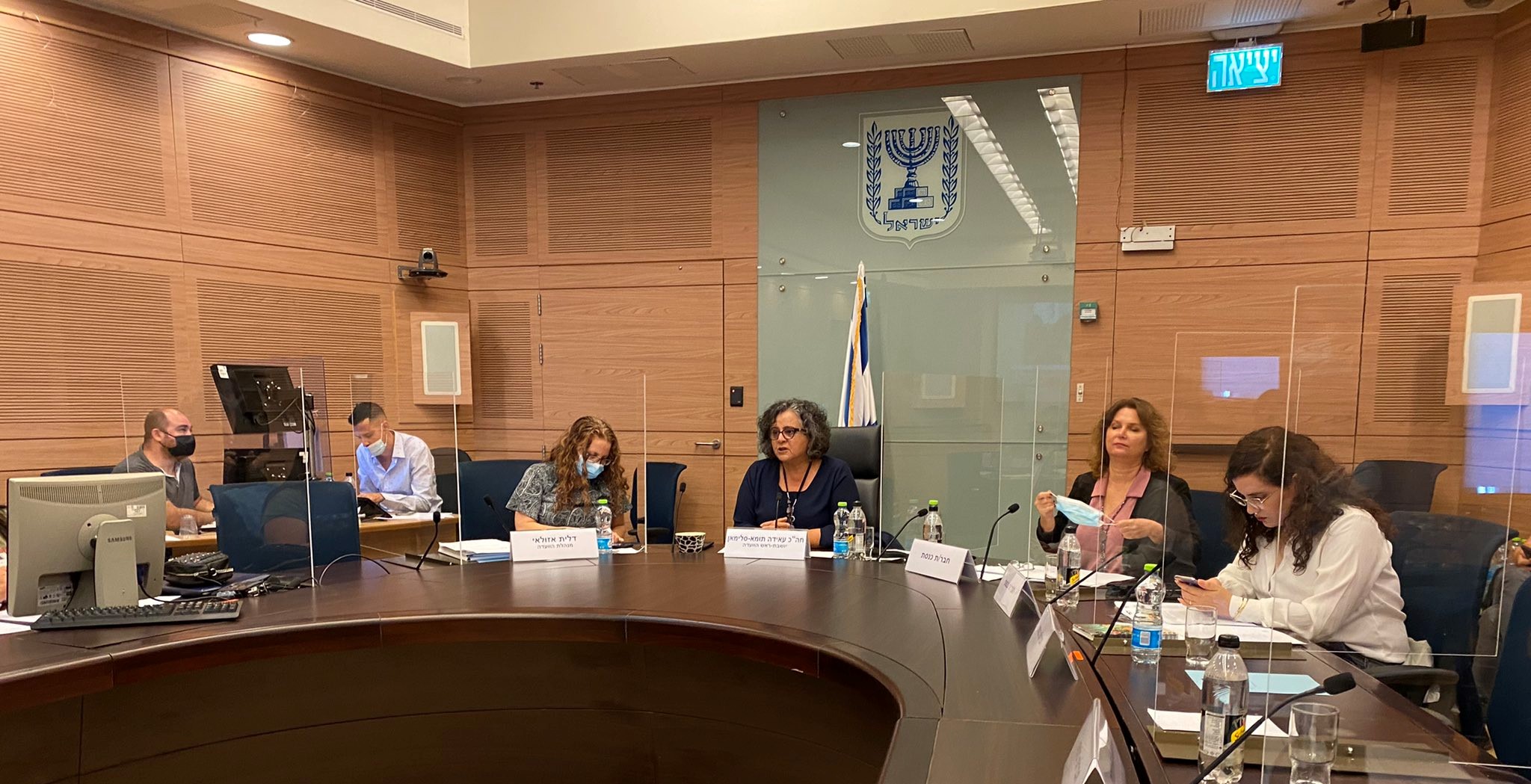The Knesset’s Committee on the Status of Women and Gender Equality convened on Wednesday, October 6, to discuss reports of sexual harassment and other forms of abuse of employees at Kan, the Israeli Public Broadcasting Corporation, following reports published by Tamar Kaplansky last July in Haaretz alleging dozens of instances.
According to these reports, based on testimonies gleaned from alleged victims and their colleagues, employees at Kan regularly face abuse, humiliation and insults by managers. Furthermore, incidents of sexual harassment have not been properly addressed by the corporation and have gone unpunished.

The Knesset’s Committee on the Status of Women and Gender Equality convened on Wednesday, October 6, to discuss reports of sexual harassment and abuse of employees at Israel’s Public Broadcasting Corporation, Kan. (Photo: Knesset)
After a heated discussion that included contradiction statements by various bodies as to the nature of steps being taken to address the report, committee chairwoman Joint List MK Aida Touma-Sliman (Hadash) said she did not feel encouraged. “The performance we saw here today does not encourage us that [Kan is] handling the matter of the report,” she said. “You have not convinced us – in fact, you have left us more concerned than before.”
Among those speaking to the Knesset committee were representatives from an external committee appointed to investigate the claims made in the Haaretz reports. The corporation chose not to fire workers, said committee representatives, who denied claims that the Civil Service Commission, which deals with some aspects of discipline at the public broadcaster, did not allow such firings.
Statements made at the Knesset committee meeting by corporation and commission representatives were contradictory regarding which incidents had been reported and how they were reported and handled, leaving committee members critical of the handling of the situation. “This shows the organizational culture,” said MK Touma-Sliman. “When the commission says ‘we did not get [the complaints]’ and [the broadcaster] says ‘we sent them,’ we know where in the process facts are getting lost,” the committee chairwoman quipped. “I want answers – which I’ll probably not get here – about how complaints are handled.”


